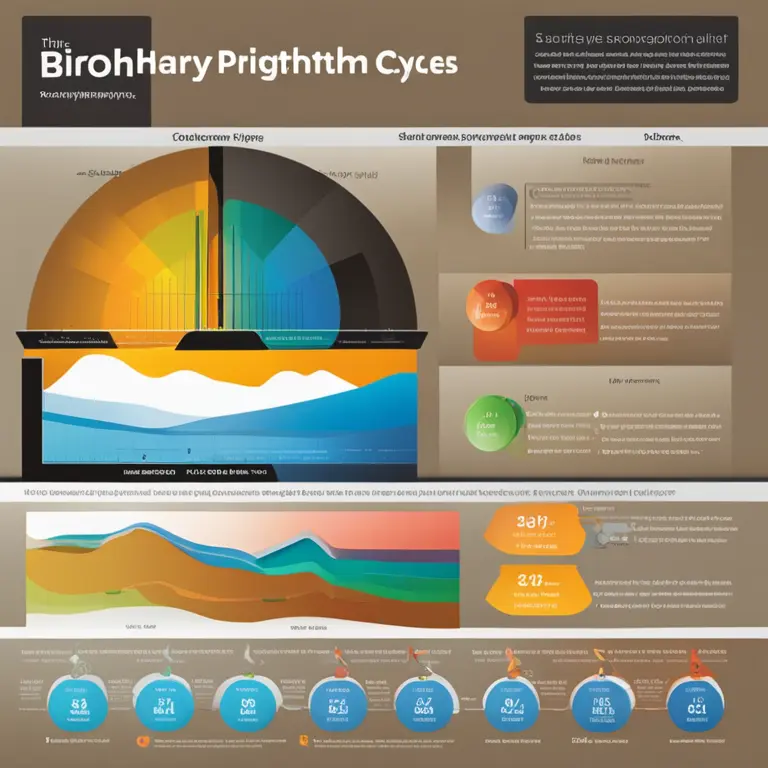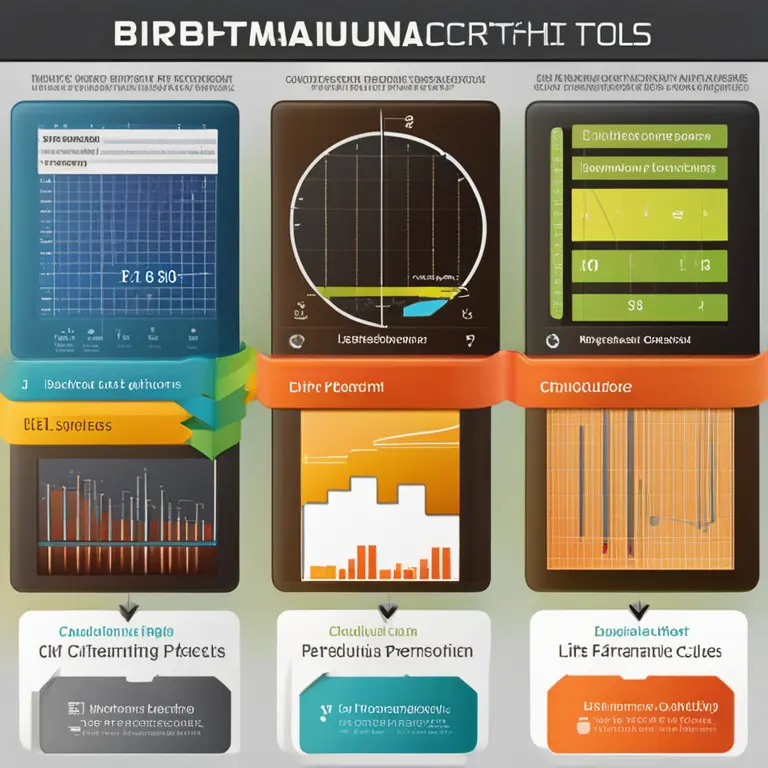
The Rhythms Concept: A Guide to Biorhythms
Discover the intriguing concept of biorhythms: the cyclic patterns influencing our physical, emotional, and intellectual states.
article by Adrian Wallace
Introduction to Biorhythms
In the realm of holistic wellness and personal development, there exists a theory that suggests our lives are influenced by cyclical patterns known as biorhythms. These cycles are thought to affect our physical, emotional, and intellectual capacities. Originating from the 19th century, the concept gained popularity in the 1970s and continues to intrigue those seeking insights into their personal well-being. The fundamental premise is that from the moment of birth, we are governed by three primary biorhythm cycles, each with its distinct duration and impact on our daily lives.

The Three Fundamental Cycles
Let's delve into the three core biorhythms. The Physical cycle, with a span of 23 days, is said to influence our stamina, strength, and overall physical condition. The Emotional cycle, lasting 28 days, supposedly sways our moods, feelings, and psychological states. Lastly, the Intellectual cycle, with a 33-day period, is believed to affect our cognitive functions, decision-making capabilities, and mental acuity. These rhythms move in sine wave patterns, oscillating between high, low, and critical phases, each presenting its unique set of influences on our daily performance and mood.

Biorhythms in Modern Times
Despite the absence of scientific consensus, biorhythm theory endures, supported by anecdotal reports and the promise of self-improvement. In our data-driven era, biorhythm calculation has evolved. With advanced algorithms and user-friendly apps, individuals can effortlessly chart their personal cycles. These tools propose to optimize planning for critical activities, sports performance, learning, and even relationship dynamics, aligning actions with one's purportedly favorable phases.

Critical Days and Aligning Activities
Within each cycle are 'critical' days, periods of transition from positive to negative phases or vice versa. During these times, individuals may feel out of sorts and are advised to exercise caution. Advocates for biorhythm awareness suggest scheduling important tasks or decisions when one's intellectual cycle is peaking, while reserving rest for low points in the physical cycle. Emotional highs can be opportune for interpersonal connections, whereas lows might call for introspection and self-care.

Skepticism and Scientific Stance
It is essential to note that the scientific community remains skeptical regarding biorhythms, attributing experiences more to confirmation bias than to predictable patterns. Critics argue that there is a lack of empirical evidence supporting the accuracy and reliability of biorhythm theory. However, the ongoing fascination with this concept illustrates a collective yearning for understanding the ebbs and flows of human experience, even if through a less conventional lens.
Conclusion and Future Perspectives
As we look towards the future, the discussion around biorhythms may evolve with new research and technological advancements. Regardless of the debate, the thought-provoking nature of biorhythms continues to appeal to those keen on exploring alternative methods of self-discovery and personal optimization. Whether as a tool for self-awareness or a subject of curiosity, biorhythms offer a distinctive viewpoint on the interconnectedness of our physical, emotional, and intellectual well-being.
Published: 1/25/2024
Modified: 1/25/2024
More predictions
Come back here soon to learn more about yourself and your future


The Principles of Biorhythm Cycles
Discover the fundamental principles of biorhythm cycles and how they influence daily life and personal well-being in this insightful article.


Biorhythm Love Compatibility: Find Your Match
Discover how a biorhythm love compatibility calculator can enhance your romantic connections by analyzing the natural cycles that influence relationships.


The Biorhythm Debate: Effective Insight or Myth?
Discover the realities behind biorhythms, how they're calculated, and their impact on daily life. Can these biological cycles truly predict our physical, emotional, and intellectual states?